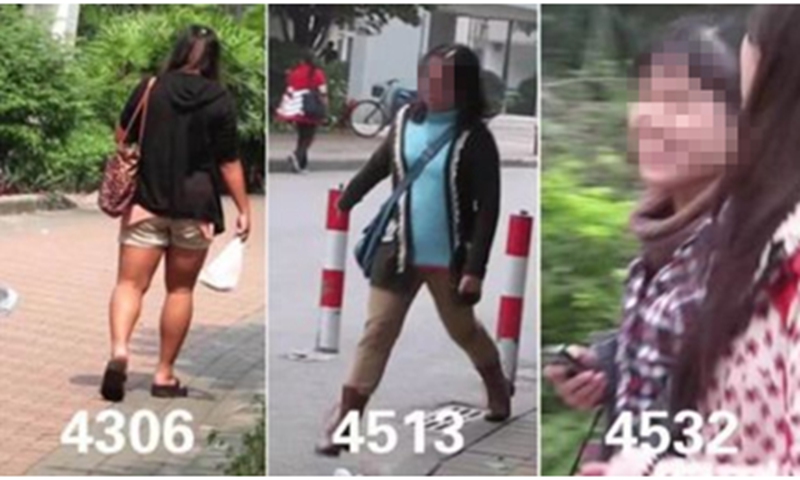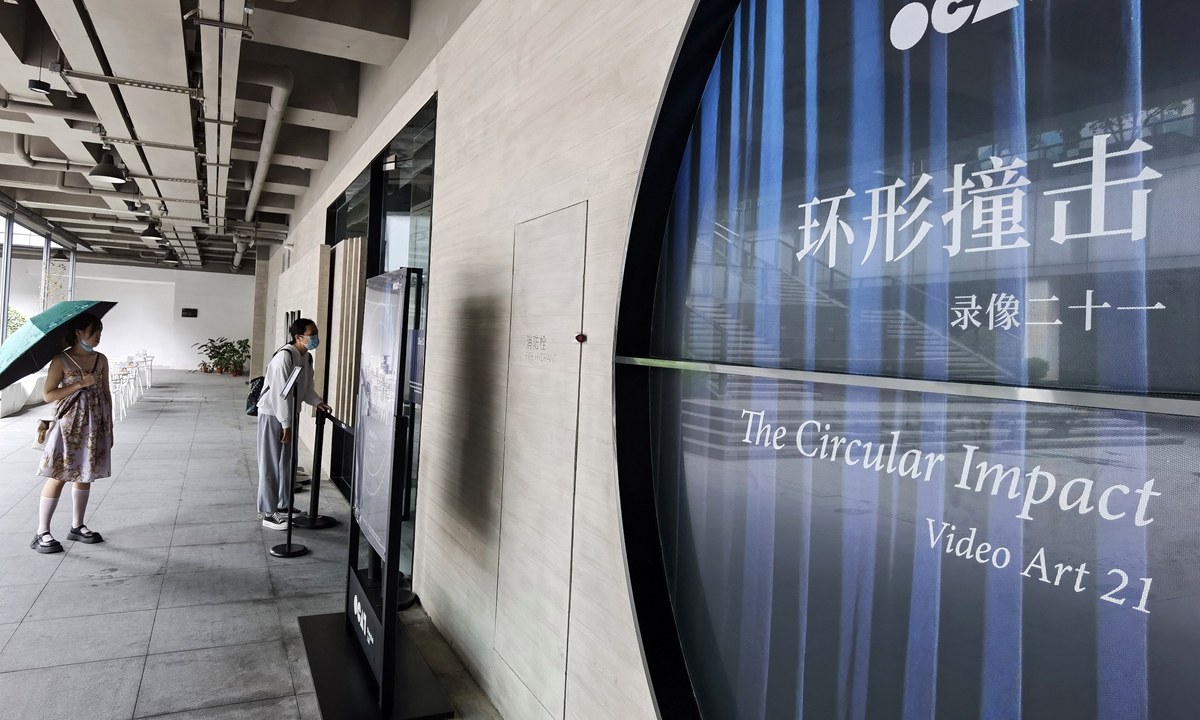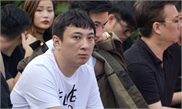
In his "artwork" titled Uglier and Uglier, Song Ta takes photos of nearly 5,000 female students and ranks them based on their looks. Photo: BIE
An art exhibition in downtown Shanghai which included an exhibit showing photos of nearly 5,000 female students and ranked them based on their looks was closed on Friday after receiving criticism.

OCAT Shanghai closes the controversial exhibition on June 18, 2021. Photo: Yang Hui/GT
OCAT Shanghai, where the exhibition was held, announced on Friday that it will remove the controversial exhibit titled Uglier and Uglier and temporarily closed the exhibition. "We found the conception and title of the work disrespected and offended females," it wrote on China's Twitter-like Weibo.
"We sincerely apologized to our visitors who felt confused, uncomfortable or hurt by this work," it added.
At OCAT Shanghai, the Global Times reporters found on Friday noon that the door of the exhibition hall was closed, with a notice board placed at the front, saying the exhibition was closed for "equipment adjustment."
"It remains unclear when it will reopen to the public," a staffer with OCAT Shanghai told the Global Times at the entrance of the exhibition hall.
Outside the hall a visitor surnamed Xiao said she was "quite astonished" after hearing about the exhibit Uglier and Uglier and heated debate it had caused.
"I wouldn't come here if I knew there was such an exhibit," Xiao, a 22-year-old female college student, told the Global Times. "I would definitely complain against the author, if he or she took my photos without my permission and openly judged my appearance in such an impolite way."
Uglier and Uglier was created in 2013 by Song Ta, then a 25-year-old artist and curator based in South China's Guangdong Province, who showed a picture introducing the exhibit that went viral on Chinese social media Weibo on Friday.
In an interview with a Beijing-based self-media account BIE in 2019, Song said he and his assistants secretly took photos of some 5,000 female students of a school, and spent a lot of time ranking them from one to nearly 5,000 merely based on their looks to make this "artwork."
The photos were displayed in an eight-hour long video "in appearance order," that was, from "the most beautiful" to "the ugliest" according to Song's own evaluation system. "The [women] ranked at the bottom were so scary that [they could make visitors] uncomfortable," Song told BIE, saying people had seldom found "so many ugly women at only one school."
Song also said he had intentionally excluded the photo of the "No.1 (top beautiful) woman" from the video. Instead of sharing the photo with the public, "I kept it for my own," he told BIE.
Song's Uglier and Uglier and his offensive words triggered wide anger among Chinese netizens this week, when this exhibit was on display at OCAT Shanghai along with other 20 artists' works at the joint exhibition named "The Circular Impact."
Many Weibo users criticized the male-chauvinist "artwork" for insulting and objectifying women.
"Song is so rude for openly commenting on these young women from their heads to feet in a condescending manner," wrote one Weibo user. "Under the guise of art, what he did has trampled on the bottom line of morality."
By secretly taking photos of the students, Song also violated their privacy and portrait rights, some users criticized.
Legal expert Zhang Bo believes that Song's behavior constituted a tort stipulated by China's Civil Code. The involved female students "can ask Song for a civil compensation, or require him to remove the photos and make an apology," Zhang told the Global Times on Friday.
The Civil Code regulates that no organization or individual may infringe upon any other person's right to portrait by means including vilifying and defacing, Zhang pointed out.
The Civil Code also makes clear that without the consent of a person entitled to portrait, the holder of rights to portrait works shall not use or make public the portrait of such person by means of publication, reproduction, distribution, lease, exhibition, etc, Zhang added.



